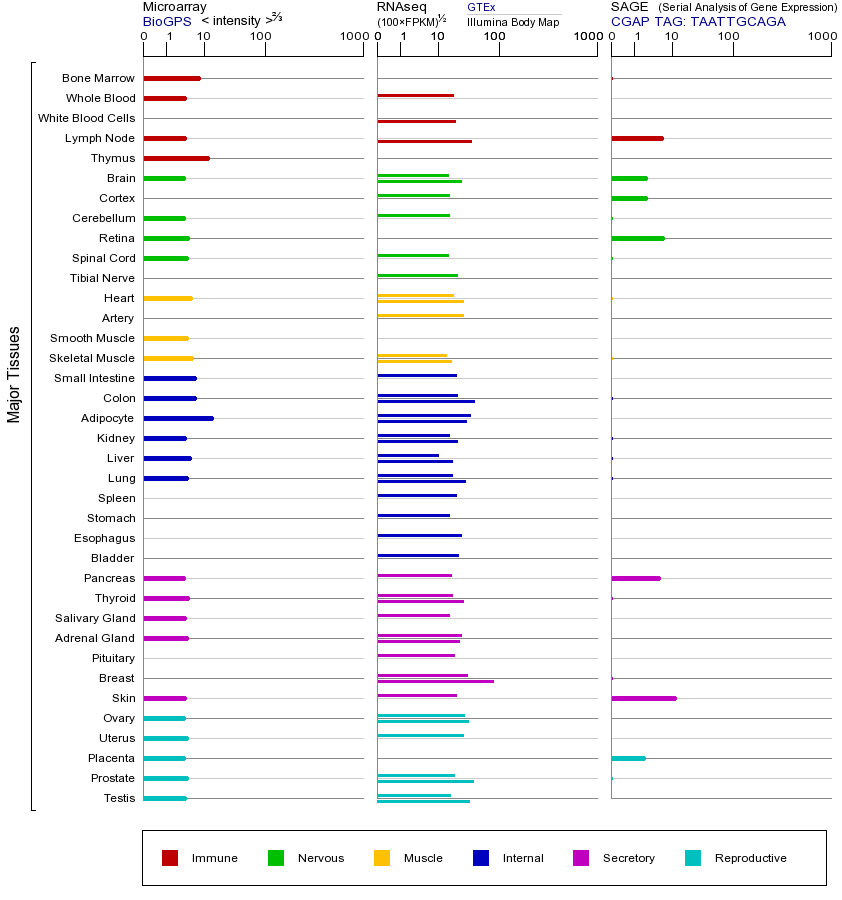CDKN2C (cyclin dependent kinase inhibitor 2C)
- symbol:
- CDKN2C
- locus group:
- protein-coding gene
- location:
- 1p32.3
- gene_family:
- Ankyrin repeat domain containing
- alias symbol:
- INK4C|p18
- alias name:
- None
- entrez id:
- 1031
- ensembl gene id:
- ENSG00000123080
- ucsc gene id:
- uc057gkh.1
- refseq accession:
- NM_001262
- hgnc_id:
- HGNC:1789
- approved reserved:
- 1995-07-06
CDKN2C(Cyclin-Dependent Kinase Inhibitor 2C)属于INK4家族(Inhibitor of CDK4)的细胞周期调控基因家族,该家族还包括CDKN2A、CDKN2B和CDKN2D等成员。这些基因的共同特点是编码抑制细胞周期依赖性激酶(CDK4和CDK6)的蛋白质,从而调控细胞周期进程,特别是在G1期到S期的过渡中起关键作用。CDKN2C编码的p18INK4C蛋白通过结合CDK4/6并抑制其与细胞周期蛋白D(cyclin D)的相互作用,阻止Rb蛋白的磷酸化,进而抑制细胞增殖。该基因在多种组织中表达,尤其在造血系统、神经系统和内分泌组织中具有重要功能。CDKN2C的突变或表达异常与多种疾病相关,特别是癌症。功能丧失性突变或表观遗传沉默导致的表达降低会解除对CDK4/6的抑制,促进细胞异常增殖,增加肿瘤风险,如多发性骨髓瘤、淋巴瘤和神经内分泌肿瘤等。相反,CDKN2C的过表达可能过度抑制细胞周期,导致细胞衰老或凋亡,在某些情况下可能具有抑癌作用。此外,CDKN2C的表达水平变化还可能影响其他细胞周期相关基因(如CDK4、CDK6、cyclin D和Rb)的功能,进而改变整体细胞增殖调控网络。研究表明,CDKN2C在造血干细胞自我更新和分化中也起重要作用,其表达异常可能导致造血系统疾病。由于CDKN2C在细胞周期调控中的核心作用,针对CDK4/6的抑制剂(如帕博西尼)已被开发用于癌症治疗,特别是在CDKN2C缺失或突变的肿瘤中可能表现出更好的疗效。该基因的深入研究有助于理解细胞增殖调控机制及开发相关疾病的治疗策略。
The protein encoded by this gene is a member of the INK4 family of cyclin-dependent kinase inhibitors. This protein has been shown to interact with CDK4 or CDK6, and prevent the activation of the CDK kinases, thus function as a cell growth regulator that controls cell cycle G1 progression. Ectopic expression of this gene was shown to suppress the growth of human cells in a manner that appears to correlate with the presence of a wild-type RB1 function. Studies in the knockout mice suggested the roles of this gene in regulating spermatogenesis, as well as in suppressing tumorigenesis. Two alternatively spliced transcript variants of this gene, which encode an identical protein, have been reported. [provided by RefSeq, Jul 2008]
由该基因编码的蛋白质是INK4家族细胞周期蛋白依赖性激酶抑制剂的成员。此蛋白已被证明与CDK4或CDK6相互作用,并防止CDK激酶的激活,从而功能作为细胞生长调节剂,其控制细胞周期的G1期的进展。该基因的异位表达被证明抑制在显示与野生型RB1功能的存在相关联的方式人类细胞的生长。在敲除小鼠的研究表明在调节精子发生,以及在抑制肿瘤发生该基因的作用。 ,已经报道了两种该基因的可变剪接转录物变体,其编码相同的蛋白。 [由RefSeq的,2008年7月提供]
基因本体信息
CDKN2C基因(以及对应的蛋白质)的细胞分布位置:
- 质膜
- 细胞质
- 细胞外
- 高尔基体
- 囊泡
- 细胞骨架
- 内质网
- 细胞核
- 内体
- 溶酶体
- 线粒体
CDKN2C基因的本体(GO)信息:
| 名称 |
|---|
| 4110 Cell cycle [PATH:hsa04110] |
| 5202 Transcriptional misregulation in cancers [PATH:hsa05202] |
| 5166 HTLV-I infection [PATH:hsa05166] |
| 名称 |
|---|
| Cell Cycle |
| Cell Cycle, Mitotic |
| Cellular responses to stress |
| Cellular Senescence |
| Cyclin D associated events in G1 |
| G1 Phase |
| Mitotic G1-G1/S phases |
| Oncogene Induced Senescence |
| Oxidative Stress Induced Senescence |
| Senescence-Associated Secretory Phenotype (SASP) |
| 疾病名称 | 关系值 | NofPmids | NofSnps | 来源 |
| Multiple Endocrine Neoplasia Type 1 | 0.125005506 | 3 | 0 | BeFree_GAD_ORPHANET |
| Malignant neoplasm of ovary | 0.007101096 | 3 | 0 | GAD |
| Malignant neoplasm of breast | 0.00554839 | 4 | 0 | BeFree_GAD |
| Thyroid Neoplasm | 0.0054487 | 2 | 0 | LHGDN |
| Medulloblastoma | 0.003810118 | 4 | 0 | BeFree_LHGDN |
| Multiple Myeloma | 0.003724241 | 5 | 0 | BeFree_GAD |
| Glioma | 0.002995792 | 2 | 0 | BeFree_LHGDN |
| Pheochromocytoma | 0.00272435 | 1 | 0 | LHGDN |
| Hodgkin Disease | 0.00272435 | 1 | 0 | LHGDN |
| Pituitary Neoplasms | 0.002638474 | 2 | 0 | BeFree_GAD |
联系方式
山东省济南市章丘区文博路2号 齐鲁师范学院 genelibs生信实验室
山东省济南市高新区舜华路750号大学科技园北区F座4单元2楼
电话: 0531-88819269
E-mail: product@genelibs.com
微信公众号
关注微信订阅号,实时查看信息,关注医学生物学动态。







